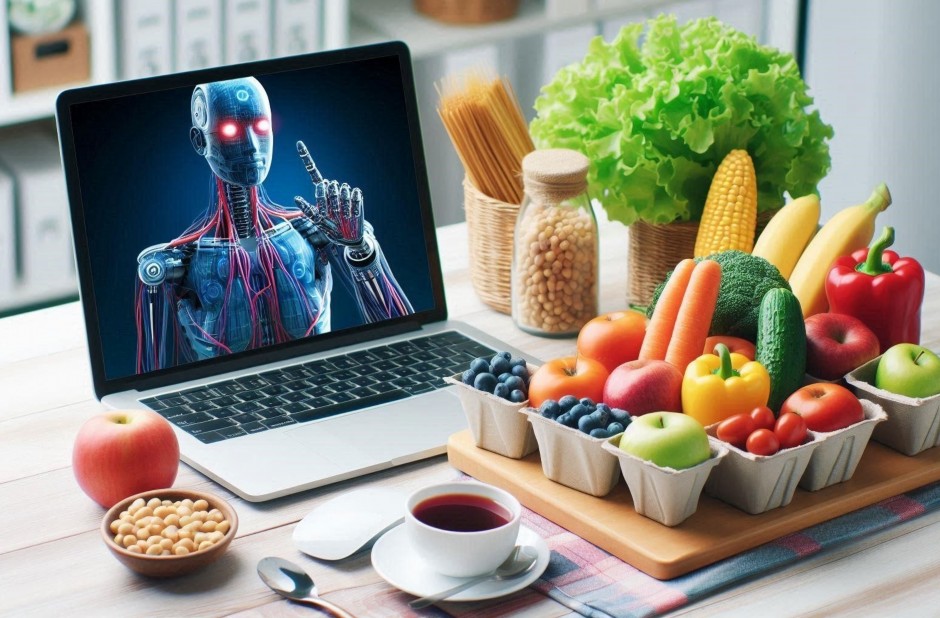In recent years, there has been a significant advancement in the field of Artificial Intelligence (AI) and Augmented Reality (AR). These technologies have become increasingly popular and have the potential to enhance virtual experiences in various fields such as gaming, education, healthcare, and...
Computer Learned to Determine Food Quality Better Than an Expert

The food industry is experiencing a technological revolution as artificial intelligence systems now demonstrate superior accuracy in determining food quality compared to human experts. This breakthrough represents a significant leap forward in food safety, quality control, and consumer protection.
The Technological Breakthrough
Recent developments in machine learning and computer vision have enabled AI systems to analyze food products with remarkable precision. These sophisticated algorithms can detect subtle changes in color, texture, moisture content, and even molecular composition that might escape the human eye. The technology combines multiple sensor inputs, including high-resolution imaging, spectroscopy, and chemical analysis, to create a comprehensive assessment of food quality.
Key Advantages Over Human Assessment
AI systems offer several critical advantages in food quality determination:
- Consistency: Unlike human experts who may experience fatigue or subjective bias, AI maintains consistent evaluation standards throughout extended periods
- Speed: Computer systems can process thousands of samples per hour, dramatically outpacing human inspection rates
- Precision: Advanced sensors detect microscopic changes and chemical markers invisible to human senses
- Objectivity: Eliminates human subjectivity and potential errors in judgment
Applications Across the Food Industry
Fresh Produce Assessment
In fruit and vegetable processing, AI systems excel at determining optimal ripeness, detecting bruising, and identifying signs of spoilage. The technology can predict shelf life with remarkable accuracy, helping retailers optimize inventory management and reduce food waste.
Meat and Dairy Quality Control
For animal products, AI systems analyze marbling patterns in meat, detect bacterial contamination, and assess freshness indicators. In dairy processing, these systems monitor milk quality, detect adulteration, and ensure consistent product standards.
Processed Food Manufacturing
Manufacturing facilities utilize AI for real-time quality monitoring during production. The systems can detect deviations in color, texture, or composition that indicate processing errors or contamination risks.

Impact on Food Safety and Economics
The implementation of AI-driven quality assessment has profound implications for both food safety and economic efficiency. Enhanced detection capabilities significantly reduce the risk of contaminated products reaching consumers, while improved accuracy minimizes unnecessary product recalls and waste.
Economic Benefits
Companies implementing AI quality assessment report substantial cost savings through:
- Reduced labor costs for manual inspection
- Decreased product waste through accurate quality prediction
- Improved customer satisfaction and brand reputation
- Enhanced supply chain efficiency
Future Developments and Challenges
While current AI systems demonstrate superior performance, ongoing research focuses on expanding capabilities to assess nutritional content, detect allergens, and predict taste profiles. However, challenges remain in standardizing these technologies across different food categories and ensuring regulatory compliance.
Integration Considerations
Successful implementation requires careful integration with existing quality control processes, staff training, and investment in appropriate hardware infrastructure. Companies must also address data privacy concerns and maintain transparency in their AI-driven decision-making processes.
Conclusion
The emergence of AI systems that surpass human experts in food quality assessment marks a transformative moment for the food industry. As these technologies continue to evolve and become more accessible, they promise to enhance food safety, reduce waste, and improve overall quality standards. The future of food quality control lies in the synergy between human expertise and artificial intelligence, creating a safer and more efficient food supply chain for consumers worldwide.



